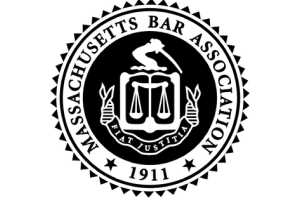The Police Want to Question Me, What Do I Do?
One of the most common questions that a Lowell criminal defense attorney will receive is what to do when the police want to talk to you? The answer is usually very simple: do not talk to the police. That is not because our clients are trying to hide something. It’s not because our clients are guilty. It’s not because our clients want to make the job of a police officer more difficult than it is already. The reason that often attorney Sullivan advises his clients not to speak to the police is because the goals of the police and the goals of attorney Sullivan often are at odds. This doesn’t mean that attorney Sullivan works against the police (although that can be the case). It is simply that the police may use a client’s statement against him in court in the future.
When a client is innocent of the charge (not winning on a technicality, but truly not guilty and is wrongfully charged), there exists a dilemma. If the police wish to speak with a client in these circumstances, a client may be worried about the fact that the police could think that someone who does not talk is guilty. The simple answer is that it doesn’t matter whether the police think you’re guilty. Still, a persistent client may say: “but I have nothing to hide, why shouldn’t I tell my side of the story?” This is a misunderstanding of the criminal justice system. The system, for better or worse, relies on the subjective intentions of the police and the prosecutors. This isn’t always a guarantee that the truth will be enough to win.
Attorney Sullivan explains to many clients that innocence of a charge is not a defense to the charges being brought. Our job is to demonstrate that a client is innocent to the prosecutor, or the judge, or ultimately the jury. To prove a client did not do anything wrong, the remedy is going to trial. And so a person who is innocent of a crime can still find themselves charged with a crime — even though they did nothing wrong.
This scenario reveals a very important point. As many clients assume they would not be charged if they did nothing wrong, this is therefore an assumption of many of the potential jurors. That if a person is charged with a crime, they must have done something wrong. This is why it is all the more necessary for any person charged with a crime to have a competent and capable criminal defense attorney — not only to make the arguments to a judge and jury about the innocence of the client, but also to ferret out those jurors who already view the mere fact that a client is charged as evidence of their guilt.
Getting back to the question at hand, the simple fact is that the police sometimes (for a variety of different reasons) do not get it right. An example of this is when the police speak to an individual who is very convincing in reporting a crime, but the crime actually was not committed. The “victim” gives specific details to the police that make the police believe they were telling the truth. This is also called corroboration. The person claims the crime happened on a specific day, for example the first day in July. The police, armed with all of the information that they received from this person, want to have a conversation with one of attorney Sullivan’s clients. Attorney Sullivan’s clients would be given advice not to speak to the police. Let’s assume though that this was not one of attorney Sullivan’s clients, and the person spoke to the police. The person said they can’t be the one who committed the crime as they have proof they were in another state at the time. This is what we call an alibi defense, which is one of the strongest defenses available to anyone charged with a crime. The statement to the police is “I can’t be guilty of this crime because I was in a different location when the crime was committed.”
You may ask, how on earth can a person be convicted when they have such a strong defense? Well remember, the person was not following attorney Sullivan’s advice and gave a statement to police. The police took the alibi and spoke to the “victim” about the date discrepancy. The person responds by saying they meant to say August 1, not July. Now the client does not have an alibi. There may still be a strong defense, but not as strong as had the client not revealed their strongest argument to the police before speaking with an experienced criminal defense attorney. As a result, the case may still go forward even though there is a problem with the prosecutor’s case. Going forward the case is worse for the defense as the client’s alibi is significantly diminished because the date of the crime changed.
You may say to yourself that this example could never happen. This does happen, and the hypothetical is based on a real case. And this is just one way, one example, of why you should not speak to the police. The police are not necessarily acting in bad faith, but they still may bring charges against a person who is innocent. One of the tools available to a person who is innocent, but still charged, is to consult with an experienced attorney before speaking with the police. Whether you do or don’t have something to hide, the vast majority of criminal defense attorneys will give you the same advice: do not speak to the police. The remaining defense attorneys will tell you not to talk to the police without a capable criminal defense attorney present.
If you or a loved one is faced with an investigation, whether you were a witness or suspect, and you want to have a conversation about what your options are, contact our team. Schedule a consultation and discuss your options now.





